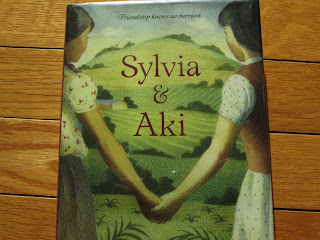“Each
and every wolf has a story to share. Can we be trusted to listen?”
Marc Bekoff
Every member of a pack of wolves is valued by
the others and recognized as a unique individual who makes a special
contribution to the group. Their bonds are deep. Jim and Jamie Dutcher spent six years living in a
tent beside a pack of wolves by the Sawtooth Mountains of Idaho. The Wisdom of Wolves shares their knowledge and experience of living side by side with the Sawtooth pack of wolves,
taking us into an emotional journey of countless surprises.
Jim and Jamie Dutcher describe the wolves’ compassionate nature; they admire their curious courageous spirit. Wolves care well for the most vulnerable in the pack, and they do what it takes to keep everybody safe. Jim and Jamie examined their relationships and paid special attention to the ways wolves communicate. They also learned how wolves keep each other in check to maintain harmony in the group.
The authors give each wolf a name and
describe their fascinating personalities. Besides, they explain how wolves
interact with other species.
When a
person kills an old wolf, the survival of the group as a whole is threatened
because old wolves have invaluable knowledge and experience that help the pack.
Furthermore, the loss of any member of the group causes deep pain among the
wolves. The Wisdom of Wolves elucidates how they grieve.
The
book was published by National Geographic. Both Jim and Jamie Dutcher raise public
awareness about the true nature of wolves by writing books, making
documentaries and giving talks in educational settings.
The authors debunk the myth of the so-called lone wolf: “We often hear the term of the ‘lone wolf’ in reference to a person who acts alone, cares for no one, and craves no companionship. Sadly, like so many negative things falsely connected to wolves, the term has now come to mean a loner who wishes to do us harm. Such a state is an aberration among humans, and it’s equally rare among wolves.”
It is
important to clarify the concept to avoid misunderstandings and confusion. The
truth is that a lone wolf in nature is a temporary phenomenon. Biologists call
him a disperser. In reality “the lone
wolf in nature is a wolf in its third year or so who has decided to leave its
birth pack and strike out in search of new territory and a mate. What does a
lone wolf want? It wants to stop being a lone wolf. It wants togetherness, to
be part of something bigger.” It is not the aberration that the misused
term alludes to.
The term “lone wolf” should not be used to
describe people that have no compassion and empathy for others because it
perpetuates an attitude of ignorance toward wolves. It tarnishes the reputation
of wolves and is dangerous. Another relevant fact to highlight here is that
when the ecosystems where wolves thrive are respected, wolves don’t attack
cattle.
During
the fourth year of their project, Jim and Jamie encountered all kinds of
threats. They received anonymous letters in their mailbox asking them “to get
rid of those wolves or we will." Authorities put pressure on them to make sure
they would move out of their wolf camp. They were persecuted in different ways.
“Somebody
posted signs near our camp warning us to be gone or ‘wind up in the Custer
County jail.’ Even a former governor weighted in, saying our project was
nothing more than ‘wolf propaganda’ and should not be allowed to exist. Jamie
and I were painfully aware that we were responsible for the lives of these
wolves, but our ability to keep them safe seemed increasingly beyond our
control.”
In view of the stress they faced, Jim went
out for a walk to sort things out. During his walk, the leader of the pack,
Kamots, stayed close to him. He would disappear into the trees, and then he
would emerge again, trotting and exploring the territory, until something
amazing happened.
As Jim sat and talked to himself, wondering
what to do, Kamots approached him.
“In a
gesture I’d never seen before, he raised his paw up to me. I put out my hand
and pressed it against his paw, and we sat there like that for a minute in
silence. I felt as though he was assuring me that if we held up our end, he
would hold up his. We should continue to deal with the human world, and in his
calm, strong, confident way, he would keep his pack stable and safe. He was
that kind of leader.”
The wolves gave Jim and Jamie a very special gift: the gift of trust between species, and through this gift they learned a lot about life, love, and compassion. You can visit their website to learn more about their work:
If you enjoyed this post, you will probably welcome my writing on these books:
Second Nature: The Inner Lives of Animals
Unforgotten




















